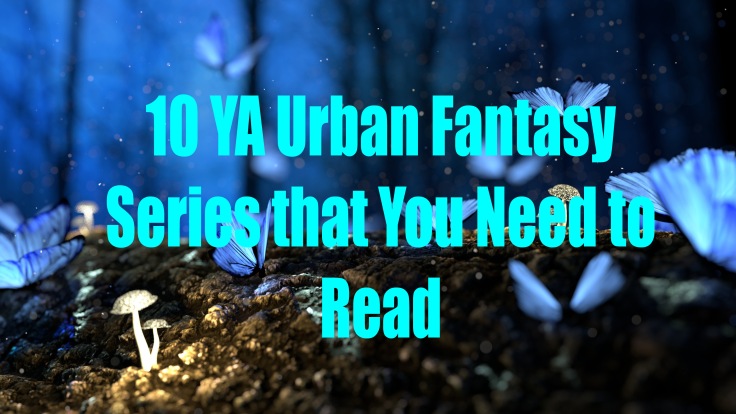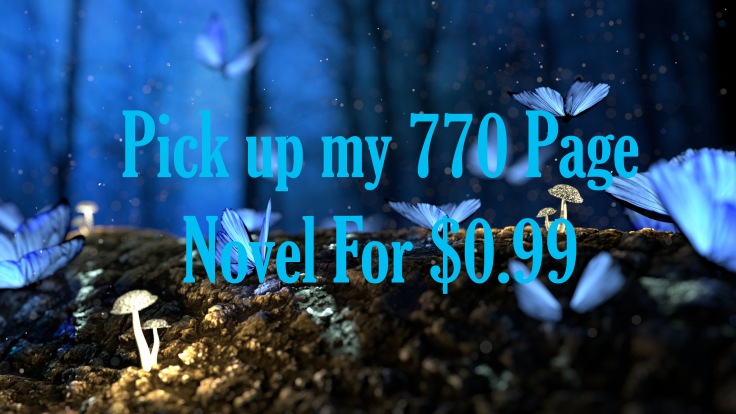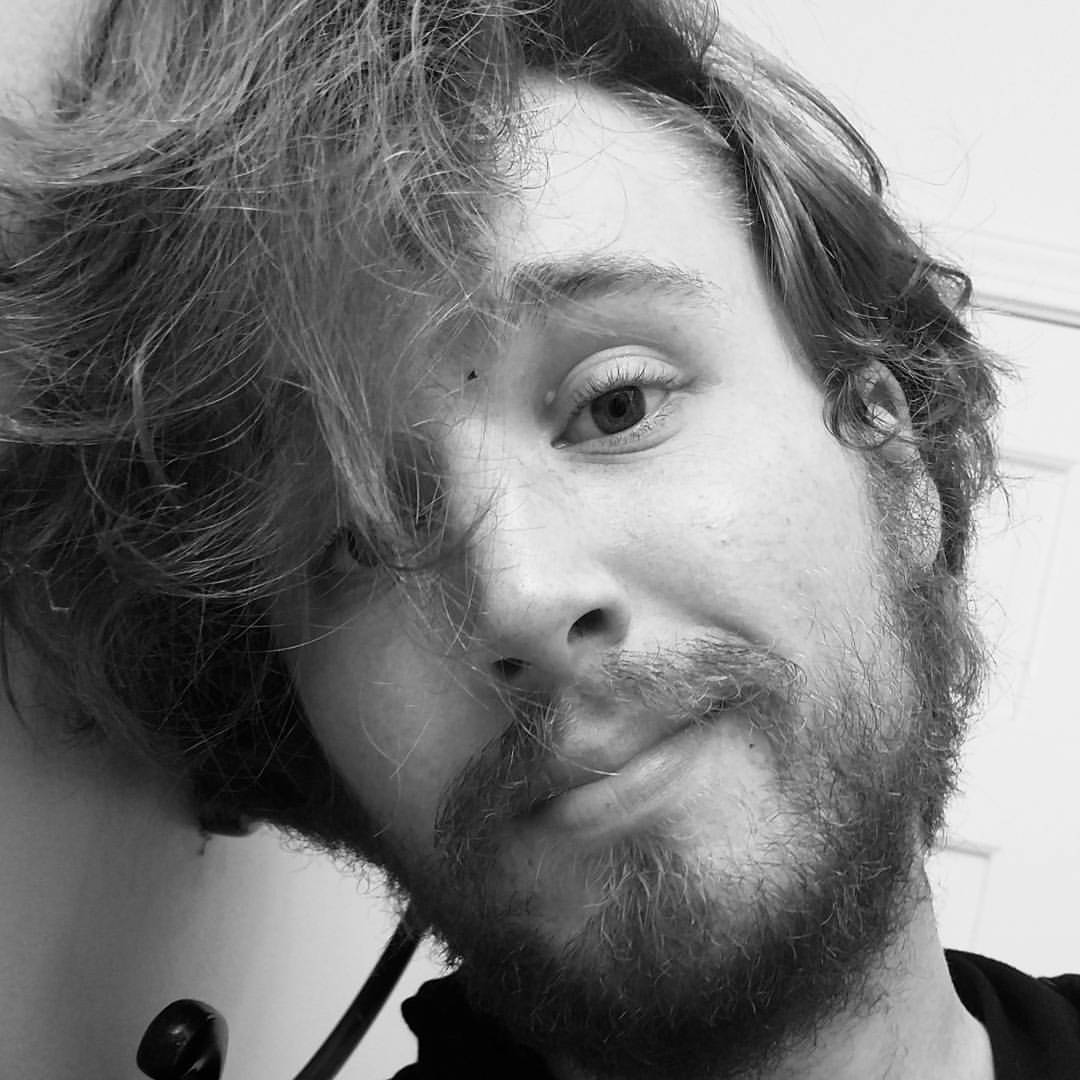
I put together a list of ten of my favorite YA urban fantasy series. For anyone interested in checking out my fantasy novel (Aidan’s Shadow), please enjoy the free sample on Amazon. I’m planning to make several lists detailing some of my favorite books. I did my best to avoid major spoilers. Just as a heads up, I’m part of the Amazon Associate program. I included affiliate links to these series, but these reviews are not paid promotions.


Put simply, urban fantasy stories usually show the interaction between the modern world (urban) and the supernatural world (fantasy). Frequently, normal humans are unaware of the fantastical elements around them.
#10: The Heroes of Olympus :


The Heroes of Olympus by Rick Riordan begins where the Percy Jackson and the Olympians series (The Last Olympian) ended. For anyone unfamiliar with the premise, Rick Riordan is the author of numerous fantasy books involving demigods (children of gods and humans) from various mythologies (Greek, Roman, Norse, and Egyptian). Heroes of Olympus focuses on the Greek and Roman pantheons. He included plenty of references, deities, monsters, heroes, and characters from Greek and Roman myths. I like how he adapted them to fit modern life. Those urban fantasy moments were always interesting.
Even though it’s geared towards a younger audience, I quite enjoyed his first series when I read it in high school. I really liked the fantasy world and many of the memorable characters. I especially liked Percy (the protagonist), Anabelle, and Nico. I picked up this series because I wanted to know what would happen to these characters. Though it’s an enjoyable read, I didn’t love that the first book in this new series primarily focuses on three new characters. I still enjoyed the new premise (Greek and Roman demigods joining forces to take on a new threat).
The series picked up significant steam in Son of Poseidon. I really enjoyed seeing the Roman equivalent of Camp Halfblood. I also found Percy and his new Roman friends to be far more likable and interesting than the characters introduced in the previous book. Riordan handled the perspective changes and ensemble cast quite well.
Over five books, the plot gets a bit convoluted, but I still really enjoyed the narrative. The humor is probably better for a younger audience, but Heroes of Olympus still features a number of funny moments (e.g., the Oracle of Delphi predicting the future by examining the inside of stuffed animals). The action and suspense are exciting without being stressful. Overall, It’s an excellent escapist story, and the world is interesting. It’s definitely worth checking out (especially for younger readers or fans of his other works).
#9: The Hunt


The Hunt Trilogy (The Hunt, The Prey, The Trap) by Andrew Fakuda has some science fiction, dystopian, and post-apocalyptic elements, but I still consider it to be a young adult, urban fantasy series. No offense to Twilight fans, but I loved that Fakuda inverted the vampire romance trope. He masterfully returned the vampire story to its horror roots. The protagonist (Gene) is a 17-year old human who has spent his entire life masquerading as a vampire. I found him relatable and likable. Fakuda did a great job of showing Gene’s intelligence and resourcefulness, while also showing his human frailty.
Gene lives in a dystopian city where the vampires are the dominant species. They have hunted the humans to the point that they are believed to be extinct in the wild. The vampire world is cruel, emotionless, and cold. They consider themselves to be people and the humans to be primitive cattle. However, the city is technologically advanced (and eerily similar to our own). Basically, the vampires look like modern people (exceedingly pale, athletic, perfect individuals who sleep on the ceiling…) until they encounter a human. From that point, they become horrific, merciless, and barbaric monsters. I do not want to give too much of the plot away, but the premise of the first novel involves Gene being selected to join a heper (human) hunt. He has to maintain his cover while the other vampires prepare to chase down some of the last of his kind.
The horror elements in this series are on point. The vampires are terrifying and disgusting, and the action sequences are engaging and exciting. The dialogue is pretty solid, too. I liked Sissy and Gene, but some of the other characters are less interesting. Overall, it’s great for fans of dystopian worlds and suspenseful horror.
#8: The Infernal Devices


The Infernal Devices series (Clockwork Angel, Clockwork Prince, and Clockwork Princess) by Cassandra Clare acts as a bit of a prequel series for her Mortal Instruments series (City of Bones, City of Glass, etc.). It’s set in Victorian England, and it follows some important developments in the shadowhunter world (portals, the interaction between magic and the industrial revolution, etc.). Clare’s series follows a hidden society of shadowhunters (also called Nephilim) who hunt demons and corrupted vampires, werewolves, faeries, and mermaids.
I liked the literary allusions, dark themes, cyberpunk aesthetic, frantic action, sardonic comedy, exploration of Victorian gender roles, and balanced pacing. Some of the characters are less memorable than others, but there are plenty of likable people. I didn’t really care about the love triangle, but she handled those three characters (Tessa, Jem, and Will) well. I’ve read almost all of Clare’s shadowhunter books, and I like how she tied the Infernal Devices to the Mortal Instruments (and the Dark Artifices). Magnus has always been one of my favorite characters, and he acts as a great link through the centuries. The three books add plenty of interesting exposition and context for fans of the Mortal Instruments (especially with its connections to Jace and City of Heavenly Fire).
I would recommend reading the first three Mortal Instruments books first, but this series is worth picking up.
#7: The Dark Artifices


The Dark Artifices series (Lady Midnight, Lord of Shadows, and Queen of Air and Darkness) by Cassandra Clare picks up several years after the most recent (and possibly final) book in her Mortal Instruments series. It’s far better than Tales from the Shadowhunter Academy (a series of spinoff novellas that she co-wrote with ghost writers), but I didn’t like it as much as the original series. Just as a warning, it’s a bit wordy. I prefer denser stories, so I didn’t mind. The Dark Artifices follows a new generation of shadowhunters, humans with enhanced fighting abilities (because of angel blood, angelic marks, and various magical weapons). The series is set in Los Angeles, and it follows some of the characters that Clare introduced in City of Heavenly Fire.
I worried that Clare wouldn’t be able to replicate her winning formula, but I enjoyed Lady Midnight, the first book in this new series. I did not care about the characters (especially Julian’s younger siblings) as much as I cared about Simon, Isabella, Magnus and my favorite characters in her original series. But I liked Emma and Julian. Their star-crossed romance is a little tropey, but it’s still an emotional rollercoaster. Unfortunately, the other plot (another scheme by those meddlesome faeries) felt a little stale. I still loved Clare’s world of demons, vampires, werewolves, faeries, and warlocks. Overall, it’s a solid YA urban fantasy novel. I just prefer the original series. So far, I’ve only read the first book, but I want to check out the second one eventually. Lord of Shadows might change my ranking.
#6: Percy Jackson and the Olympians


Percy Jackson and the Olympians by Rick Riordan is a fun pairing of young adult fantasy with Greek mythology. It’s accessible for younger readers, but I still thoroughly enjoyed the series in high school. Percy Jackson is a demigod. His father is a Greek god, and his mother is a human. This affords him incredible powers, but he’s still mortal. Think Perseus (his namesake), Heracles (Hercules), and other heroes in Greco-Roman mythology. I like Percy, and I think that he’s an interesting protagonist. Riordan did a great job of integrating mythology with the modern world and showing how these myths might have evolved to fit American culture (e.g., pegasi who love donuts, the Empire State building serving as Mout Olympus, etc.).
I don’t know if I would enjoy the series quite as much if I went back and read it as someone in his mid-twenties, but I loved it in high school. Some of the humor might seem corny to older readers, but I still highly recommend checking it out. It’s a memorable and interesting ride.
#5: The Reckoners:


The Reckoners (Steelheart, Firefight, Calamity) by Brandon Sanderson could fall under several other genres (sci/fi, dystopian, post-apocalyptic, superhero, etc.), but it has some urban fantasy elements. I actually picked up Steelheart because the cover caught my eye. I’m so glad that I did. I was hooked from the first chapter. From a technical standpoint, Sanderson is a more talented novelist than many of the other writers in this genre (and I include myself in that list). Many of his other novels are intended for an older audience, so I liked his take on the young adult genre.
In this series, some humans mysteriously develop superhuman powers (flight, telekinesis, pyrokinesis, the ability to create portals to parallel universes, etc.). For a while, people are fairly OK with this. The selection process seems to be random, so some unscrupulous people (i.e., villains) use their powers to commit crimes. However, good people (i.e. heroes) use their powers to protect the normies from these villains and other threats. Unfortunately, these powers eventually corrupt all of the heroes. The world is thrown into chaos and anarchy. The crumbling remains America basically operates as warzone with feuding city-states (each ruled by their own powerful supervillain). A resistance attempts to undermine (and assassinate) the superhumans.
Sanderson is extremely prolific, and a master of his craft. The action, themes, suspense, descriptions, pacing, and plot were all solid and interesting. I found the main character’s dialogue to be a bit cringey (especially when interacting with the love interest), but he is relatable and endearing. I particularly enjoyed the world-building and exploration of the corrupting potential of incredible power.
For what it’s worth, these are definitely the best post-apocalyptic, superhero novels that I’ve ever read.
#4: The Magicians


On the other end of the spectrum from Riordan’s works, Lev Grossman’s Magicans Trilogy is far more mature, darker, and more graphic. I wouldn’t neccesarily recomend it for anyone younger than about 15, but it still has some young adult elements. I guess that it fits in this border area between YA and adult fantasy. I loved the more complex and morally ambigous themes, characters, and subject matter. But the characters are still young enough for this to count as a coming of age story. I guess that this could tie into the themes of extended adolescence.
The series addresses mental illness, sexuality, ennui, existential crises, and some other heavier topics. I didn’t even know about The Magicians until I saw the commercials for the Syfy Channel Show. The premise sounded interesting, so I watched the first season. I see why some people percieve Quentin and Alice to be pretentious, but I still liked them. I also loved the nods to Harry Potter and The Chronicles of Narnia (especially The Magician’s Nephew).
The first book in the series (The Magicians) largely follows the experiences of Quentin Coldwater (a depressed and introspective guy) and his fellow classmates as they work their way through a magical college and grad school program. The college is hidden in upstate New York, and it’s almost as cool as Hogwarts. Quentin is obsessed with a series of books about Fillory, a magical world (that is very similar to Lewis’ Narnia). I hate to give anything away, but Quentin eventually learns that it is possible to travel to other worlds like Fillory.
The series is hilarious, complex, emotionally engaging, and just generally awesome. I think that Grossman may be a slightly more talented writer than Clare, but The Mortal Instruments holds too much nostalgic weight for me to rate this series more highly. Still, I thoroughly recommend checking this out.
#2: The Mortal Instruments


The Mortal Instruments by Cassandra Clare is an enjoyable YA urban fantasy series. I read the first three books when I was in high school. I really enjoyed them, and I’ve read all of the sequels and spinoffs (except for Lord of Shadows). Her series is set primarilly in New York City. It follows Clary, a highschooler who suddenly discovers that she can see beyond the glamour (obscuring fog) into a world of demons, shadowhunters, and downworlders (vampires, werewolves, faeries, merfolk, etc.). Most humans can’t see past this enchantment/ magic. She eventually discovers that she was born a shadowhunter, but her shadowhunter mother lied to her and placed a block on her sight (ostensibly to protect her from the dangers of that world).
Clary and her friend Simon have to work together with the shadowhunters (namely Isabella, Jace, and Alec) to prevent evil shadowhunters from summning an army of demons and reshaping the world to fit their vision. I liked Clary in the first three books, but I wasn’t particularly interested in her relationship with Jace. Still, I loved most of the characters. I especially liked Simon, Isabella, and Magnus.
I feel like additional descriptions would include spoilers, so I’ll just say that I enjoyed this series. It’s not high fantasy or Shakespeare, but it’s really fun and engaging.
#1: Harry Potter


Harry Potter (The Sorcerer’s Stone, The Chamber of Secrets, The Prisoner of Azkaban, The Goblet of Fire, The Order of the Phoenix, The Half-Blood Prince, and The Deathly Hallows) will always be my favorite urban fantasy series. My mom read the first few books to me when I was a child, and I love the world that Rowling created. It holds far too much emotional weight for me to objectively evaluate the writing style and technical features, but I adore the characters, emotional resonance, plot, pacing, attention to detail, and dialogue. I still love escaping into that world of magic, fantastic creatures, bravery, friendship, and mystery. In my mind, this is the definitive urban fantasy story of my lifetime. I’ve read the series at least five times, and I cannot recommend it highly enough. I liked how the series grew darker and more mature with each new installment. I didn’t enjoy The Cursed Child (probably because it was a collaborative effort with playwrights), but I sincerely hope that she writes a few more books in this universe. Her Fantastic Beasts screenplay was also solid.
Honorable Mentions: Tithe, Gone, Penryn and the End of Days,
Thanks!
Luke














